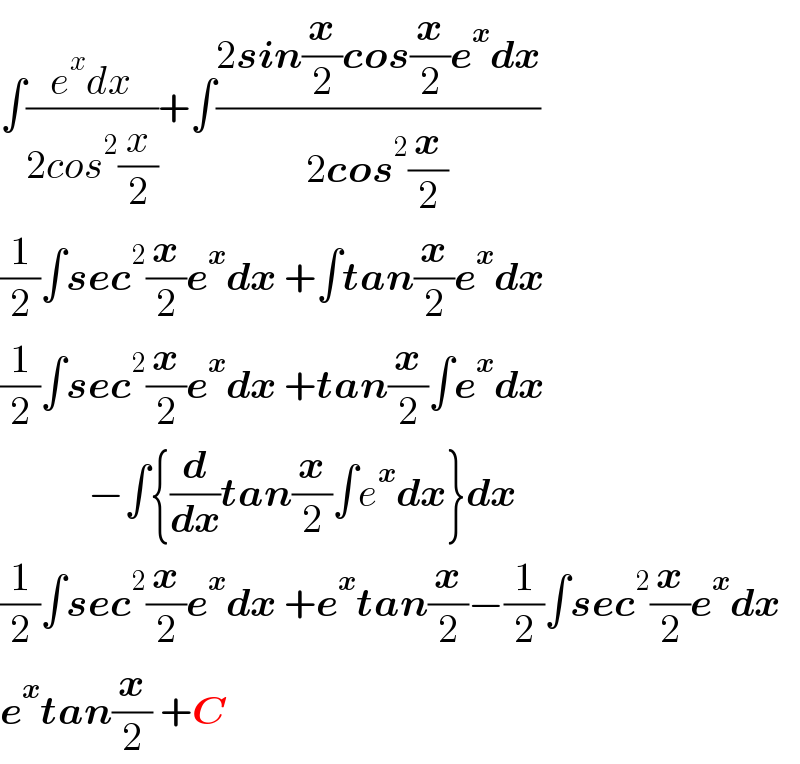
Question and Answers Forum
Question Number 142120 by bekzodjumayev last updated on 26/May/21

Commented by bekzodjumayev last updated on 26/May/21

Commented by Avijit007 last updated on 26/May/21

Answered by som(math1967) last updated on 26/May/21

Commented by bekzodjumayev last updated on 26/May/21

Answered by Avijit007 last updated on 26/May/21
![The given integral is, ∫((1+sin x)/(1+cos x))e^x .dx =∫[e^x {(1/(1+cosx))+((sinx)/(1+sinx))}].dx =∫[e^x {(1/(2cos^2 ((x/2))))+((2sin((x/2))cos((x/2)))/(2cos^2 ((x/2))))].dx =∫[e^x {(1/2)sec^2 ((x/2))+tan((x/2))].dx ⇓ ⇓ f ′(x) f(x) ∵ we know that, ∫e^x {f ′(x)+ f(x)} ⇒e^x f(x)+c = e^x .tan((x/2))+c {ANS} by Avijit](Q142128.png)
